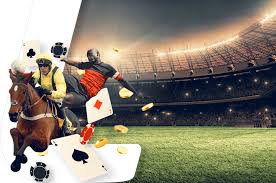How to win at poker Strategies and Tips

How to Win at Poker: Mastering the Game
Poker is more than just a game; it’s a battle of wits, psychology, and strategy that can yield significant rewards for those who master it. If you’re looking to improve your game and increase your chances of success, this article will guide you through essential strategies, tips, and insights to help you win at poker. Whether you’re a novice or an experienced player, understanding the intricacies of this game is vital. In this journey to becoming a poker champion, it’s crucial to know not just the rules but also the art of playing within them. Check out How to win at poker vivibet-india.com/si for more gaming strategies and insights.
Understanding the Basics of Poker
Before you can win at poker, you need to understand its fundamental concepts. The most popular variant, Texas Hold’em, consists of the following key elements:
- Blinds: The forced bets that start each hand, setting the stage for a competitive round.
- Hole Cards: The two cards dealt face down to each player at the beginning of a hand.
- Community Cards: Cards dealt face up in the center of the table, which players can use to form their best five-card hand.
- Winning Hands: Understanding the ranking of hands is crucial, from high card to royal flush.
Starting Hands: Choose Wisely
Your starting hand is one of the most pivotal moments in poker. The cards you choose to play can determine your fate in a hand. It’s important to be selective:
- Position Matters: The later your position at the table, the more information you have about your opponents’ actions. Use this to your advantage.
- Starting Hand Ranges: Familiarize yourself with the strength of different starting hands. Premium hands (e.g., AA, KK, QQ) and strong connectors (e.g., AK, KQ) are usually worth playing.
Reading Opponents: The Psychological Aspect
Success in poker isn’t solely based on the cards you hold; it’s also about reading your opponents. Here are some strategies to improve your ability to assess their behaviors:
- Tells: Pay attention to your opponents’ behaviors and patterns, such as their betting habits and physical actions, which may reveal the strength of their hands.
- Bluffing: Master the art of bluffing, but be cautious. A successful bluff can turn the tide of the game, but a poorly timed one can be costly.
- Adapting: Adjust your strategy based on how your opponents are playing. Are they aggressive or passive? Tailoring your approach can provide a significant edge.
Betting Strategy: The Art of Wagering

Betting is a crucial component of poker strategy. Here are some key concepts to keep in mind:
- Value Betting: When you have a strong hand, extract maximum value by betting appropriately to entice your opponents into calling.
- Pot Odds: Understand the odds of winning versus the amount in the pot. This helps in making informed decisions on whether to call, raise or fold.
- Continuation Betting: Often, if you raised pre-flop, a continuation bet can put pressure on opponents, given that they may miss the flop.
Bankroll Management: Play Smart
No matter how skilled you are, poor bankroll management can lead to facing financial troubles. Consider the following tips:
- Set Limits: Establish limits on what you’re willing to spend and stick to them. This protects you from going on tilt after a few bad hands.
- Choose the Right Games: Play at stakes that match your bankroll. It’s essential to compete at levels where you can afford to lose without significant impact.
Practice: The Path to Mastery
Like any skill, poker requires practice. Here are avenues for improvement:
- Online Poker: Playing online allows you to practice without the pressure of live settings. Experiment with different strategies to see what works best.
- Review and Analyze: After sessions, take time to review hands and decisions. This reflective practice can help identify mistakes and improve your strategy.
Stay Calm and Focused
Emotional control is vital in poker. Here are tips to maintain your composure:
- Stay Disciplined: Don’t let emotions dictate your decisions. Stick to your strategy, regardless of how the game is unfolding.
- Take Breaks: If you find yourself frustrated or overwhelmed, take a break. Clearing your mind can prevent impulsive decisions.
Conclusion
Winning at poker is a blend of skill, strategy, psychology, and a bit of luck. By understanding the game’s intricacies, practicing regularly, and managing your bankroll wisely, you can significantly improve your chances of success. Remember, even the best players face challenges – what sets champions apart is their ability to learn, adapt, and grow from every experience at the table. Happy playing!
